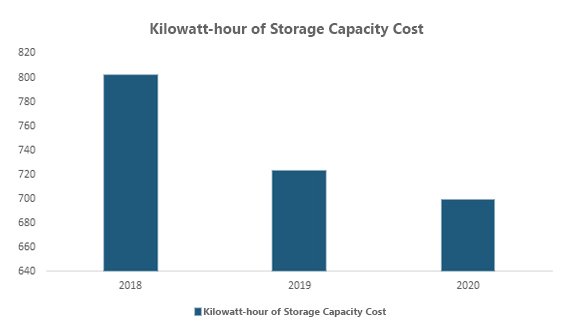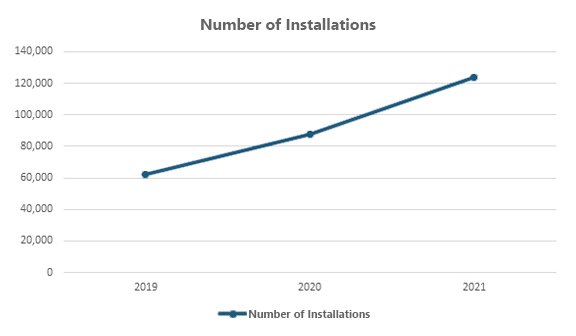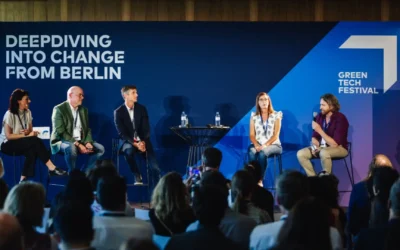- Germany has been actively working towards shifting the residential sector to clean energy sources and has offered programs and incentives to the residential consumers of electricity in this regard.
- KfW, on behalf of the Federal Ministry for Economic Affairs and Energy (BMWi), runs a program focused on promoting stationary battery storage systems alongside PV systems.
- EEG 2017 has a specific provision which ensures that the EEG surcharge does not apply twice on the electricity stored in an energy storage system.
Germany has been actively working on encouraging a shift in the residential sector to clean energy sources and has offered programs and incentives to the residential consumers of electricity in this regard. This has led to a major share of consumers from the residential segment to install PV solar systems and take advantage of tax benefits and energy savings. Later, as a result of widescale research and development, efficient batteries were introduced in the market resulting in a massive shift in demand for battery storage in the global energy market, which were now being integrated with the residential PV installations for backup power.
In Germany, a steep drop in the cost of energy storage was observed from 2018-2020 and onwards, dropping from around USD 800 in 2018 to around USD 700 in 2020. The number of installations of energy storage systems in the country increased as a natural consequence of the drop in the cost. ESS installations increased from around 60,000 in 2019 to beyond 120,000 in 2021.

Figure 1: Kilowatt-hour of storage capacity cost.
Source: Power Technology Research

Figure 2: Number of residential storage installations in Germany from 2019-2021.
Source: Power Technology Research
CATL is the leading player in energy storage system’s market of Germany, which is followed by CATL, Panasonic, BYD and LG Energy Solutions.

Figure 3: Leading players in the energy storage market of Germany.
Source: Power Technology Research
Government Incentives for Residential Energy Storage
Germany has introduced several programs, including the KfW (Kreditanstalt für Wiederaufbau) bank loans and repayment bonuses, the BEG (Bundesförderung für effiziente Gebäude) program and feed in tariff under the Renewable Energy Act 2017 (EEG 2017), to promote the deployment of residential energy storage in the country. Details of the government incentives are as follows:
KfW Bank
Germany’s state-owned investment and development bank, KfW, on behalf of the Federal Ministry for Economic Affairs and Energy (BMWi) runs a program focused on promoting stationary battery storage systems alongside PV systems. The program offers low interest KfW loans and repayment bonuses from BMWI funds. It was discontinued as the federal government temporarily stopped funding for energy-efficient buildings through KfW from January 24, 2022, but was soon re-instated with a fresh USD 10.3 Billion package for the program.
Major changes in the program compared to its predecessor include:
- The photovoltaic installation may feed, at maximum, 50% of the installed capacity into the power grid (previously 60%).
- The manufacturer must provide a 10-year fair value replacement guarantee for the promoted batteries (previously seven years).
3. The level of the repayment bonuses is degressive over the program period, meaning that the repayment bonuses are reduced gradually from 25% to 10% of the eligible costs, depending on when the application is submitted.
BAFA
The BEG (Federal Subsidy for Efficient Buildings) program combines already available programs focused on promoting energy efficiency and renewable energy in the building sector while supporting the use of existing heating systems, measures on the building envelope and the use of optimized system technology. The existing funding programs that have been combined since the beginning of 2021 are as follows: CO2 building renovation program (energy-efficient construction and renovation program), the heating optimization program (HZO), the energy efficiency incentive program (APEE), and the market incentive program for the use of renewable energies in the heating market (MAP).
The BEG is now categorized into 3 subprograms:
1. Federal funding for efficient buildings- residential buildings (BEG WG)
- Federal funding for efficient buildings- non-residential buildings (BEG NWG)
3. Federal funding for efficient buildings- individual measures (BEG EM)
Feed in Tariffs
Under the the electricity stored in an energy storage system qualified for the feed in premium which is granted to the operator once it supplies electricity to the electricity grid. EEG 2017 has a specific provision which ensures that the EEG surcharge does not apply twice on the electricity stored in an energy storage system and applies only to the electricity fed from the storage into the electricity grid as long as net metering requirements are met, subject to certain limitations.
Looking Ahead
Power Technology Research believes that government incentives and grants, be it KfW loans, BEG program or the feed in tariff under the Renewable Act 2017 (EEG), have provided a considerable push to the residential storage market in Germany. This is evident from the surge in the number of residential storage installations in the country (although reduction in the kilowatt-hour storage capacity cost also played a role) which have increased from around 60,000 in 2019 to more than 120,000 in 2021. PTR also believes that the cost of kilowatt-hour storage capacity will further reduce but the drop in the cost will not be as sharp as that from 2019-2021.
Energy Storage Service Overview
The research presented in this article is from PTR's Energy Storage service. For information about this service please submit a request shown below.
Contact Sales:
Europe
+49-89-12250950
Americas
+1 408-604-0522
Japan
+81-80-7808-1378
GCC/Rest of APAC
+971-58-1602441
More about our:
Energy Storage Market Research
Recent Insights
Sustainability Across Sectors: Highlights from GreenTech Festival 2024
Recently, I had the privilege to attend and present at the Greentech Festival, an excellent event in the realm of sustainability. This influential...
US and EU Strategies in Smart Buildings
Download Service Overview The EU and USA aim to decarbonize their building sectors to meet emission reduction targets. Initiatives like the Home...
COP through the Ages
This infographic takes a cursory glance at the most significant achievements of the Conference of Parties through the years and offers a chance for...


